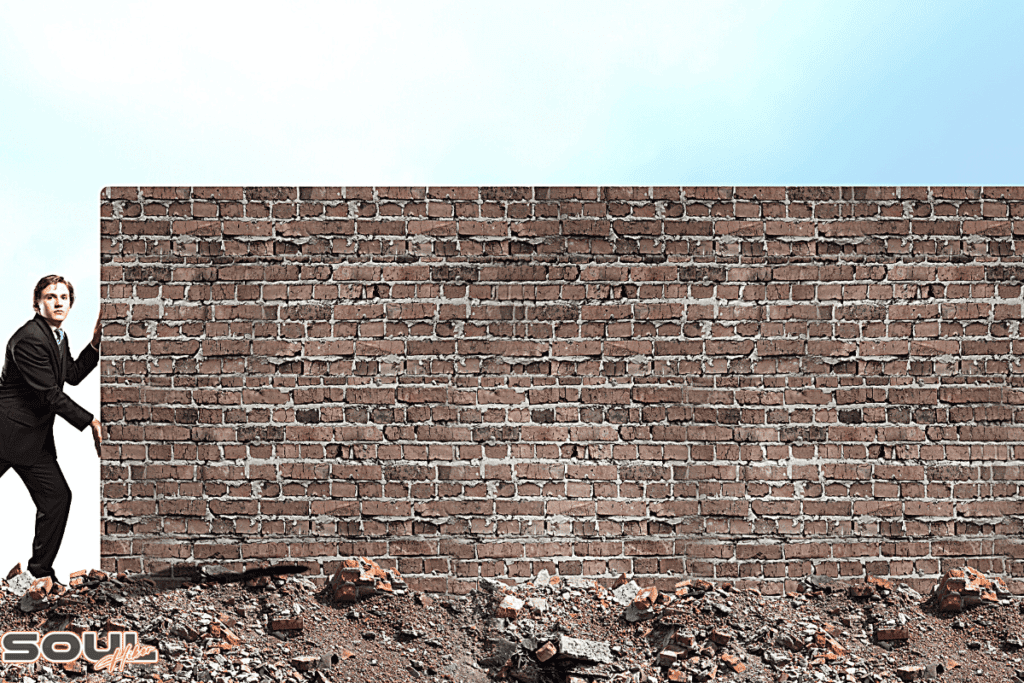Breaking mental barriers is essential for personal growth and achieving one’s full potential. These invisible obstacles, shaped by negative thoughts, fears, and self-doubt, can prevent us from reaching our goals and living a fulfilling life. This article explores practical strategies to identify, confront, and overcome these psychological hurdles. By embracing a proactive mindset and implementing these techniques, individuals can dismantle the barriers that hinder their progress and unlock new possibilities for success and personal satisfaction.
Table of Contents
What Are Mental Barriers?
Mental barriers are psychological obstacles that hinder individuals from achieving their full potential or accomplishing specific goals. These barriers can often be seen as a mid life crisis, but they manifest in various forms, including self-doubt, fear of failure, procrastination, negative self-talk, and limiting beliefs about one’s abilities or worth.
Fear of failure often stems from negative past experiences or a heightened aversion to risk, leading individuals to avoid challenges that carry a risk of failure, even when those challenges could lead to significant personal or professional growth.
Perfectionism, closely related to fear of failure, is the belief that one must deliver flawless work or performance at all times, which can lead to excessive stress, anxiety, and often a reluctance to start or complete tasks.
Procrastination, another common barrier, is the act of delaying or putting off tasks, usually as a coping mechanism to avoid dealing with overwhelming tasks or fear of failure. Self-doubt involves a lack of confidence in one’s abilities and decisions, leading to missed opportunities and hesitation to pursue goals.
Mental barriers often stem from past experiences, societal pressures, or internalized perceptions of one’s limitations. They can significantly impact decision-making, behavior, and the ability to pursue new opportunities or challenges. Overcoming these barriers requires self-awareness, positive mindset shifts, resilience, and sometimes professional support, to break free from restrictive thought patterns and embrace growth and change.
10 Ways On How To Break Mental Barriers

1. Identify the Barriers
Recognize and define the mental barriers you face, such as fear of failure or self-doubt. Understanding these obstacles is crucial for developing strategies to overcome them. Reflect on your experiences and feelings to pinpoint what holds you back. This clarity is the first step toward personal growth and change.
2. Challenge Negative Thoughts
Actively dispute and challenge your negative thought patterns. Employ cognitive behavioral techniques to replace pessimistic thoughts with positive, realistic ones. This practice helps in altering the underlying beliefs that contribute to mental barriers. Over time, practicing gratitude can lead to more optimistic thinking and behavior.
3. Set Realistic Goals
Break down your overarching goals into smaller, achievable tasks. This approach makes goals seem more attainable and less intimidating, reducing feelings of overwhelm.
This can be a daily practice, such as writing down your most important goals for the day in the morning after waking up. Achieving these smaller tasks provides a sense of progress and accomplishment, motivating you to continue moving forward.
4. Develop a Growth Mindset
Cultivate a mindset that views challenges as opportunities for growth rather than insurmountable obstacles. Embrace the idea that effort and learning can lead to development and success. This mindset shift is fundamental in overcoming fears of failure and embracing life’s challenges positively.
5. Practice Self-Compassion
Be kind and understanding toward yourself, acknowledging that mistakes and setbacks are part of the human experience. Practicing self-compassion helps mitigate the fear of failure and encourages persistence in the face of difficulties. It fosters a supportive internal environment conducive to taking risks and trying new things.
6. Visualize Success
Engage in mental visualization of achieving your goals and overcoming obstacles. This technique can enhance your self-confidence and motivation, making your objectives feel more attainable. Visualization acts as a rehearsal for success, preparing your mind and body for the actions needed to achieve your goals.
7. Seek Support
Reach out for help from friends, mentors, or professionals. A support network can provide encouragement, advice, and a different perspective on your challenges. Sharing your struggles and aspirations with others can lighten your emotional load and clarify your path forward.
8. Learn New Skills
Enhancing your skill set can boost your confidence and reduce feelings of inadequacy. Whether it’s related to your personal or professional life, learning new skills equips you with the tools to tackle barriers more effectively. Continuous learning and development are key to breaking through mental limitations.
9. Take Action
Initiate small, manageable actions to combat procrastination and fear. Starting with achievable steps can build momentum and gradually increase your capacity to handle more significant challenges. Action is a powerful antidote to fear, turning apprehension into experience and achievement.
10. Reflect and Adjust
Regularly evaluate your progress and be open to changing your approach if necessary. Reflection helps you recognize what’s working and what’s not, allowing for strategic adjustments. This continuous cycle of action, evaluation, and adaptation fosters resilience and a proactive stance towards personal and professional obstacles.
Practicing reflection can be done in many ways such as journaling, meditation, or therapy. The act of checking in with oneself and being present can help break through one’s personal current obstacles.
Overcoming Mental Barriers
Overcoming these mental barriers requires a multifaceted approach. Acknowledging and understanding the root causes of these barriers is the first step toward dismantling them. Techniques such as cognitive-behavioral strategies can help reframe negative thought patterns into more positive and realistic ones.
Setting small, achievable goals can alleviate the pressure of perfectionism and reduce the tendency to procrastinate by making tasks seem more manageable. Building self-confidence through small successes, positive affirmations, and focusing on strengths rather than weaknesses can gradually diminish self-doubt.
Over time, these strategies can help individuals break down their mental barriers, leading to improved well-being and greater success in achieving their personal and professional goals.
